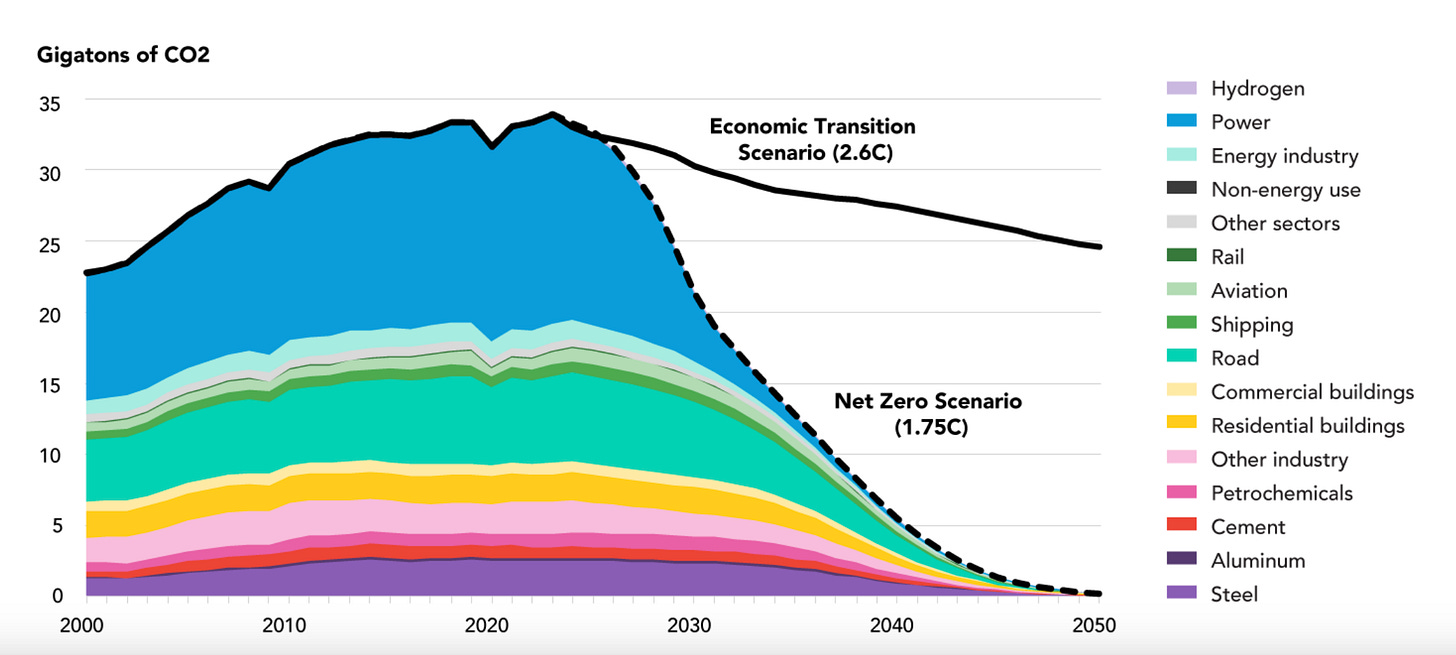Among the many extraordinary speakers we had on Embracing Our Emergency — our seminar which ended last week — I keep reflecting on Bill McKibben and his simple, straightforward message.
We have made his talk free and available to anyone who wants to hear it here. I strongly recommend watching it and thinking about it. Also, if you want to watch all of the talks at your leisure, here is a link for $150 tickets, or you can write me to request a further reduction in price.
McKibben’s main thesis is that we only have a few years left to avert total catastrophe by engineering a rapid global transition to renewable energy; this transition is technically feasible, as renewables have become cheaper than fossil fuels. He also believes we possess the raw materials and rare minerals to make such a global shift.

I appreciate his combination of urgency and optimism! For the sake of our children and future descendants, we certainly have to try to make such a shift. McKibben notes that currently the world is adding nearly a Gigawatt of solar power every day, with almost half of that capacity being added in China alone. This is the case according to PV Magazine and BloombergNEF New Energy Outlook 2004. McKibben notes:
2023 was the hottest year in the last hundred and 25,000 years, 2024 so far as hotter. This is it's hard to overstate the degree to which this is novel territory that we're in 125,000 years ago was when the first humans etched the first symbols onto bone. So no society that we would really understand as a society has ever dealt with the planet, like the one we're on now.
And you can see, of course, the unraveling happening in a thousand different ways, whether it's the onset of fire and flood or dramatic heat wave or the kind of secondary effects like the beginnings of the collapse of the insurance market at the time, as was chronicling this week or the reports last week from the National Bureau of Economic Research, that that the economic cost of being in this state of climate destruction is the economic equivalent of being in a permanent war in our country and around the world.
…
The IPCC has said that they have any hope of staying on a reasonable temperature target. We need to cut emissions in half by 2030, which by my watch is five years and six months away. So that's the period of time with which we're working with got stuff to work with. We just have to do the work and we have to do it in ways we haven't been doing so far. This planet is way outside its comfort zone, so we need figure out how to be outside our comfort zone and what that means and how we push.
I think some of it will mean nonviolent civil disobedience. I think a lot of it will mean just round the clock organizing to build the coalition ever bigger with people who want to take this on. I think that it is doable, but I don't think it's easy or automatic. In fact, I think left to its own devices, the outcome is pretty clear.
All things being equal, the fossil fuel industry is plenty strong enough to win these political fights unless we meet them head on. But we can do that. Last fall, a fairly small coalition of people managed to shut down, at least temporarily, the granting of new permits for LNG export in this country. That was the biggest global warming bomb left on planet Earth.
And we were able to at least pause it, which was a huge win and a reminder that when we figure out how to organize, we can get lots of stuff done. Now we have to figure out how to organize to not just stop things, but to make things happen. And we have to do it fast.
Echoing McKibben, the BloombergNEF 2024 report notes:
Keep reading with a 7-day free trial
Subscribe to Liminal News With Daniel Pinchbeck to keep reading this post and get 7 days of free access to the full post archives.





